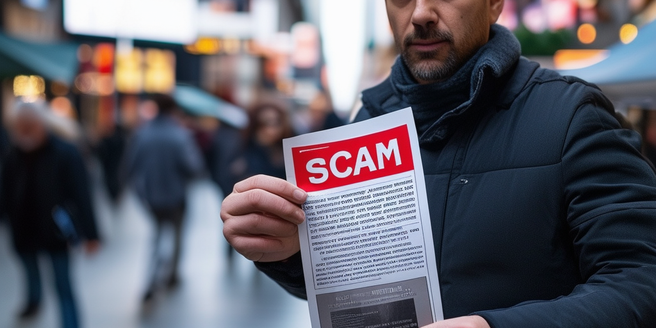
Identifying Common Online Sweepstakes Scams
Scammers deploy various tactics to exploit unsuspecting individuals entering sweepstakes. A prevalent scam involves the promise of prizes that never materialize. These fake sweepstakes typically require personal information or upfront fees under the guise of processing or delivery charges. Another common type involves phishing attempts, where scammers pose as legitimate sweepstakes operators to gather sensitive information. They often mimic well-known brands to appear credible. It’s crucial to verify the legitimacy of any sweepstakes by checking the organization’s official website or contacting them directly. Genuine sweepstakes will not request sensitive personal details through insecure channels or demand immediate action from winners. Always be cautious and skeptical of unsolicited notifications claiming you have won a prize, especially if you didn’t enter any contest.
Red Flags to Watch Out For in Sweepstakes
When engaging in online sweepstakes, being aware of red flags can help you steer clear of scams. A major warning sign includes being asked to pay fees upfront or handing over your credit card details to claim a prize. Genuine sweepstakes do not require any payment. Another red flag is the urgency to act immediately, often seen in scam communications. If a message claims you must respond quickly to secure your prize, it could likely be a scam. Additionally, poor spelling, grammar, or generic greetings like “Dear Winner” suggest a scam, as legitimate companies maintain professional communication. Suspicious email domains and unfamiliar website URLs also serve as potential warning signs. Remember, if something seems too good to be true, it probably is. Always take the time to research and verify before proceeding.
Steps to Verify Legitimate Sweepstakes Offers
Verifying the legitimacy of sweepstakes offers is vital to protect yourself from scams. Start by thoroughly reading the terms and conditions associated with the sweepstakes. Legitimate contests will provide clear rules and privacy policies. Check the organization’s website for official announcements regarding the contest. Contact the company directly if you have doubts or need clarification. Assess the mode of contact; authentic sweepstakes won’t solicit through suspicious email addresses or unsecured links. Additionally, if a sweepstake claims to be associated with reputable companies, verify this by checking those companies’ official communications or websites. Perform a quick online search with the sweepstake’s name followed by the word “scam” to see if there are reports from others. If a prize was awarded, it should not require fees for release, ensuring the offer is genuine.
Best Practices for Online Sweepstakes Safety
To ensure safety when participating in online sweepstakes, adhere to certain best practices. First and foremost, protect your personal information at all times. Only enter sweepstakes from credible companies and websites you trust, checking for reviews and legitimacy. Be wary of pop-up forms or unsolicited messages inviting you to participate in contests. Use dedicated email accounts for entering sweepstakes to avoid potential phishing scams. Be cautious about clicking on advertisements that seem overly enticing, and never provide financial information upfront. Enable spam filters in your email account to reduce unwanted scam emails. Educate yourself about common scams and stay updated with scam alerts from trusted sources. Regularly monitor your accounts for any suspicious activity. By prioritizing security and skepticism, you can enjoy participating in sweepstakes without compromising your safety.
What to Do If You Encounter a Scam
If you suspect you’ve encountered a sweepstakes scam, it’s important to act swiftly. Immediately cease all communication with the potential scammer. Preserve any emails or messages as evidence, as they can be useful for reporting purposes. Contact your financial institutions if you have provided sensitive information to limit any potential damage. File a complaint with your country’s consumer protection agency or cybercrime unit, providing as many details as possible about the scam. Spreading awareness among friends and family about the scam can also prevent others from falling victim. Monitoring your credit report can alert you to any unusual activities. Remember, reporting scams helps authorities track and take action against fraudsters, protecting others from future scams. Staying informed and vigilant is crucial to minimize risks and ensure safety in the digital landscape.
